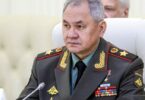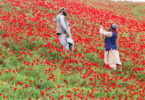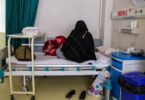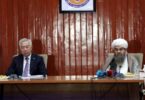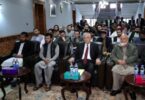Monitoring Desk
WASHINGTON: The US commander in Afghanistan is halting American and allied troops from entering Afghanistan and, in turn, preventing some troops from leaving, for the next month, American and European officials said. The planning reflects mounting concerns as the coronavirus has spread in the country in recent days.
Gen. Austin S. Miller’s decision aims to protect his forces from the virus. But, in turn, it may complicate the drawdown of troops ordered by President Trump after the United States recently signed a peace agreement with the Taliban.
American officials insist their Afghanistan drawdown will continue as planned following the peace deal. But, for now, European diplomats say they are not so sure.
There are roughly 12,000 US troops in Afghanistan. But under an agreement signed between the Taliban and American diplomats last month, that number is set to decrease to 8,600 within the next hundred or so days. NATO and coalition forces, with roughly 8,700 troops in the country, were set to draw down a commensurate amount.
Between the ongoing Taliban-fueled violence, political uncertainty at the top of the Afghan government and the possibility of a larger outbreak of the virus, NATO has put aside for now discussions of the troop drawdown. European diplomats said the uncertainty in Afghanistan will make it difficult for the Americans to stick to their drawdown plan and for NATO to follow with its own reductions.
NATO will release its annual report this week, and Secretary General Jens Stoltenberg is expected to address the Afghanistan mission at a news conference on Thursday. Alliance officials declined to comment ahead of Mr. Stoltenberg’s speech.
In a statement posted to Twitter, Col. Sonny Leggett, a spokesman for the US-led mission in Afghanistan, said that “protecting the force is our top priority.”
“We continue to execute the ordered drawdown to 8600,” he wrote.
Several European countries had tentative plans to deploy additional logistics troops to Afghanistan to help close bases as part of the peace plan. But with the uncertainty over carrying out the peace agreement and a demand for logistical expertise in Europe to fight the virus, those deployments are on hold for now, a European official said.
The European official said that troops for several countries were on a two-week quarantine before entering Afghanistan. On Tuesday, the German military said its troops going into Afghanistan would be quarantined for two weeks and any troop swaps would be postponed for at least two weeks.
But the new orders from Resolute Support could stretch that quarantine period for far longer, as the United States-led NATO command puts measures in place to try to slow the spread of the virus into Afghanistan.
One allied official said that even in a worst-case scenario, the readiness of their forces should be only marginally affected. The pause in rotations will make sure personnel coming into Afghanistan are virus-free and minimize any risk that troops leaving would infect others in their home countries.
Allied countries also plan to develop new protective measures, like isolating troops ahead of deployments. In addition, the official said, NATO nations are looking to send more medical staff to Afghanistan to help protect and treat troops deployed there.
One Defense Department official said that the new measures were also intended to stop the spread of the virus via troops coming into Afghanistan from Europe. The fear, another official said, is having virus cases overwhelm a military medical system that is meant to support the war effort. The officials spoke on the condition of anonymity to discuss plans that have not yet been made public.
There are other reasons to hold off on any rotations of European troops in and out of Afghanistan. With other European countries expected to follow France’s domestic military deployments to try to enforce social-distancing rules at home, NATO countries could quickly discover they are running out of available troops.
American officials are particularly worried about the potential impact of the coronavirus on Afghanistan, and deeply concerned that the Afghan security forces, the troops they have trained to protect the country, will end up spreading it there.
There are at least 22 confirmed coronavirus cases in Afghanistan, but testing is extremely limited and thousands of people from Iran, where the virus has spread and infected thousands, enter Afghanistan’s porous western reaches daily.
With squalid living conditions and poor health from years of fighting, Afghan troops are ill-equipped to stop the spread of the virus. And outside of the biggest cities in Afghanistan, the supplies of clean water are limited. Social distancing is also difficult, either in military barracks or rural Afghan villages.
At earlier phases of the war, the American government has tracked the spread of various diseases to the tight quarters of Afghan military barracks. Several Afghan military bases, for example, had to fight infestations of bed bugs in past years after Afghan troops brought them into a barracks where they quickly spread.
If an Afghan soldier caught the coronavirus from a NATO service member, the consequences would be far more devastating.
But American troops returning from Afghanistan are also running into their own complications.
The Pentagon’s directive to quarantine returning forces from overseas has created a short-term housing crisis as military commands have wrestled with putting large numbers of troops in areas with limited spaces and amenities for up to two weeks, a Defense Department official said.
In past weeks, at least 300 troops from the 82nd Airborne division returning from Afghanistan have had to self-quarantine at Fort Bragg, N.C., and dozens more from the 1st Armored Division are doing the same at Fort Bliss, Tex. (The New York Times)

